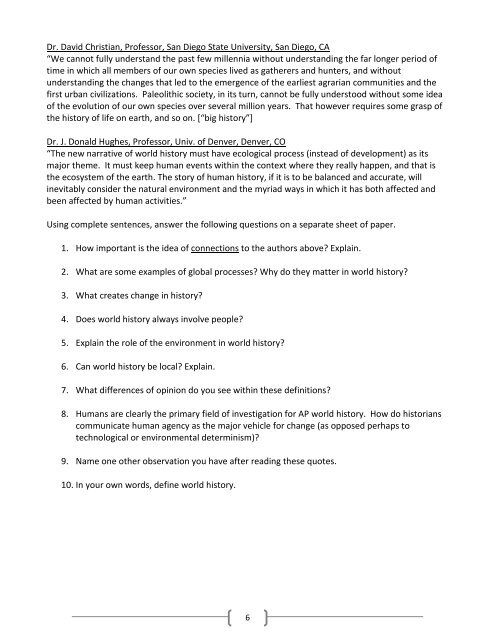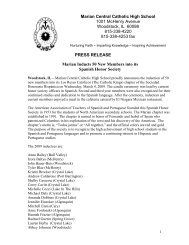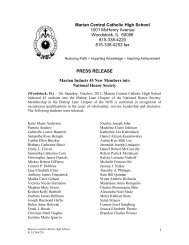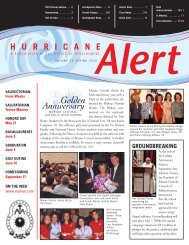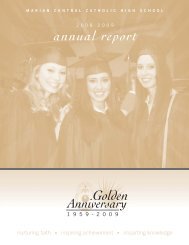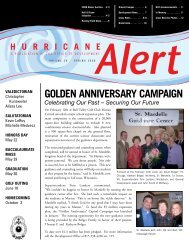WHAP - Marian Central Catholic High School
WHAP - Marian Central Catholic High School
WHAP - Marian Central Catholic High School
You also want an ePaper? Increase the reach of your titles
YUMPU automatically turns print PDFs into web optimized ePapers that Google loves.
Dr. David Christian, Professor, San Diego State University, San Diego, CA<br />
“We cannot fully understand the past few millennia without understanding the far longer period of<br />
time in which all members of our own species lived as gatherers and hunters, and without<br />
understanding the changes that led to the emergence of the earliest agrarian communities and the<br />
first urban civilizations. Paleolithic society, in its turn, cannot be fully understood without some idea<br />
of the evolution of our own species over several million years. That however requires some grasp of<br />
the history of life on earth, and so on. [“big history”]<br />
Dr. J. Donald Hughes, Professor, Univ. of Denver, Denver, CO<br />
“The new narrative of world history must have ecological process (instead of development) as its<br />
major theme. It must keep human events within the context where they really happen, and that is<br />
the ecosystem of the earth. The story of human history, if it is to be balanced and accurate, will<br />
inevitably consider the natural environment and the myriad ways in which it has both affected and<br />
been affected by human activities.”<br />
Using complete sentences, answer the following questions on a separate sheet of paper.<br />
1. How important is the idea of connections to the authors above? Explain.<br />
2. What are some examples of global processes? Why do they matter in world history?<br />
3. What creates change in history?<br />
4. Does world history always involve people?<br />
5. Explain the role of the environment in world history?<br />
6. Can world history be local? Explain.<br />
7. What differences of opinion do you see within these definitions?<br />
8. Humans are clearly the primary field of investigation for AP world history. How do historians<br />
communicate human agency as the major vehicle for change (as opposed perhaps to<br />
technological or environmental determinism)?<br />
9. Name one other observation you have after reading these quotes.<br />
10. In your own words, define world history.<br />
6


